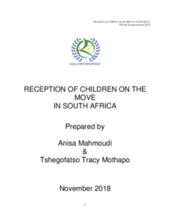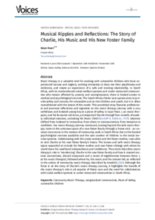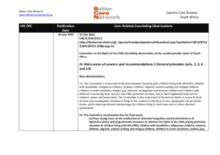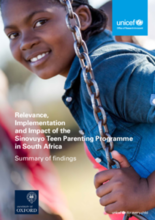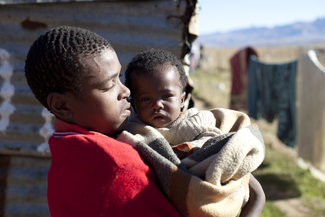

Displaying 201 - 210 of 579
This report from Kids Empowerment reviews the reception of children on the move in South Africa.
This anecdotal story features professional and personal reflections and vignettes on the music therapy journey with a very withdrawn and isolated young boy at a place of safety in Cape Town, South Africa.
This article examines the findings of a mixed-method implementation-evaluation of a local non-governmental organization's Orphans and Vulnerable Children program.
This country care review includes the care-related Concluding Observations adopted by the Committee on the Rights of the Child and the Committee on the Rights of Persons with Disabilities.
This article describes and compares the Not in Employment, Education, or Training (NEET) and Education, Employment, and Training (EET) status of care leavers from Girls and Boys Town after 1 and 2 years and in relation to other outcomes.
This article from GroundUp describes the high prevalance of delays experienced by those seeking foster care grants in South Africa.
RIATT-ESA seeks to carry out a review of partners’ programmes and develop a booklet of partners’ promising practices in providing comprehensive care and support for children and youth affected by HIV and AIDS in Southern Africa.
This article from The Citizen discusses the situation of "unsafe abandonments" of infants in South Africa.
This report summarizes research findings on the impact of the Sinovuyo Teen Parenting programme piloted in the Eastern Cape, South Africa, between November 2014 and September 2016.
This presentation provides an overview of care-leaving research in South Africa.

